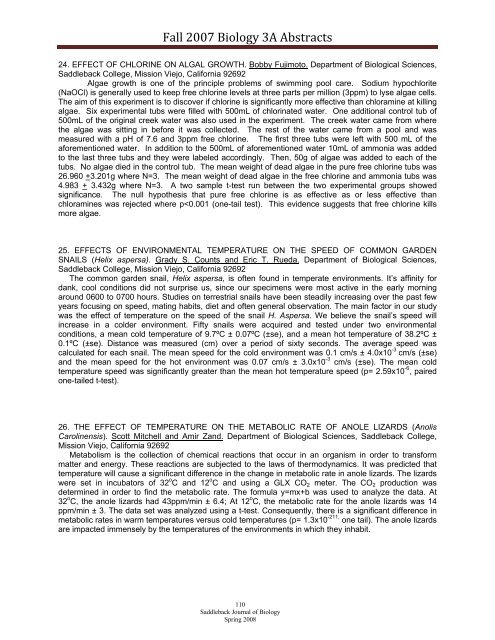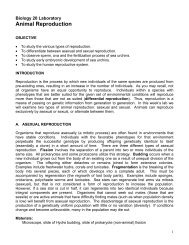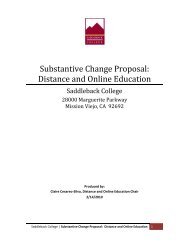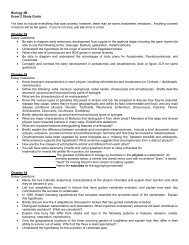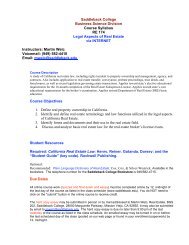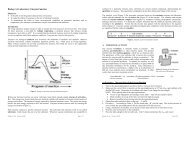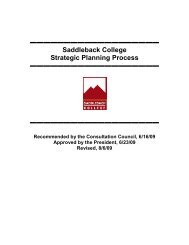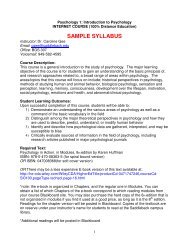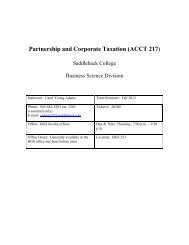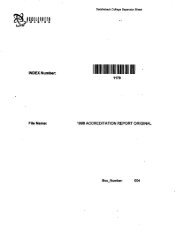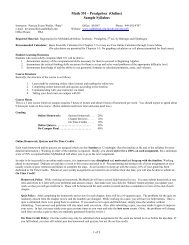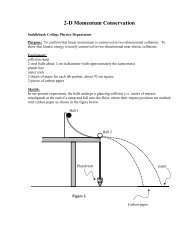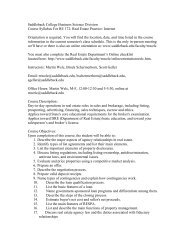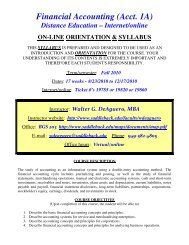Volume 6, Spring 2008 - Saddleback College
Volume 6, Spring 2008 - Saddleback College
Volume 6, Spring 2008 - Saddleback College
You also want an ePaper? Increase the reach of your titles
YUMPU automatically turns print PDFs into web optimized ePapers that Google loves.
Fall 2007 Biology 3A Abstracts<br />
24. EFFECT OF CHLORINE ON ALGAL GROWTH. Bobby Fujimoto. Department of Biological Sciences,<br />
<strong>Saddleback</strong> <strong>College</strong>, Mission Viejo, California 92692<br />
Algae growth is one of the principle problems of swimming pool care. Sodium hypochlorite<br />
(NaOCl) is generally used to keep free chlorine levels at three parts per million (3ppm) to lyse algae cells.<br />
The aim of this experiment is to discover if chlorine is significantly more effective than chloramine at killing<br />
algae. Six experimental tubs were filled with 500mL of chlorinated water. One additional control tub of<br />
500mL of the original creek water was also used in the experiment. The creek water came from where<br />
the algae was sitting in before it was collected. The rest of the water came from a pool and was<br />
measured with a pH of 7.6 and 3ppm free chlorine. The first three tubs were left with 500 mL of the<br />
aforementioned water. In addition to the 500mL of aforementioned water 10mL of ammonia was added<br />
to the last three tubs and they were labeled accordingly. Then, 50g of algae was added to each of the<br />
tubs. No algae died in the control tub. The mean weight of dead algae in the pure free chlorine tubs was<br />
26.960 +3.201g where N=3. The mean weight of dead algae in the free chlorine and ammonia tubs was<br />
4.983 + 3.432g where N=3. A two sample t-test run between the two experimental groups showed<br />
significance. The null hypothesis that pure free chlorine is as effective as or less effective than<br />
chloramines was rejected where p


